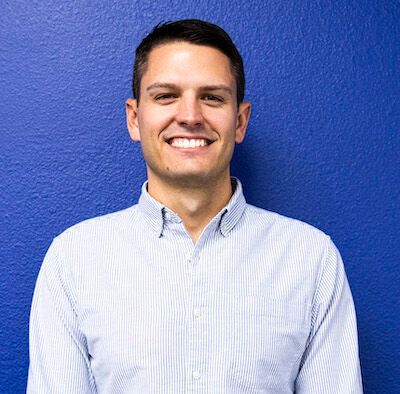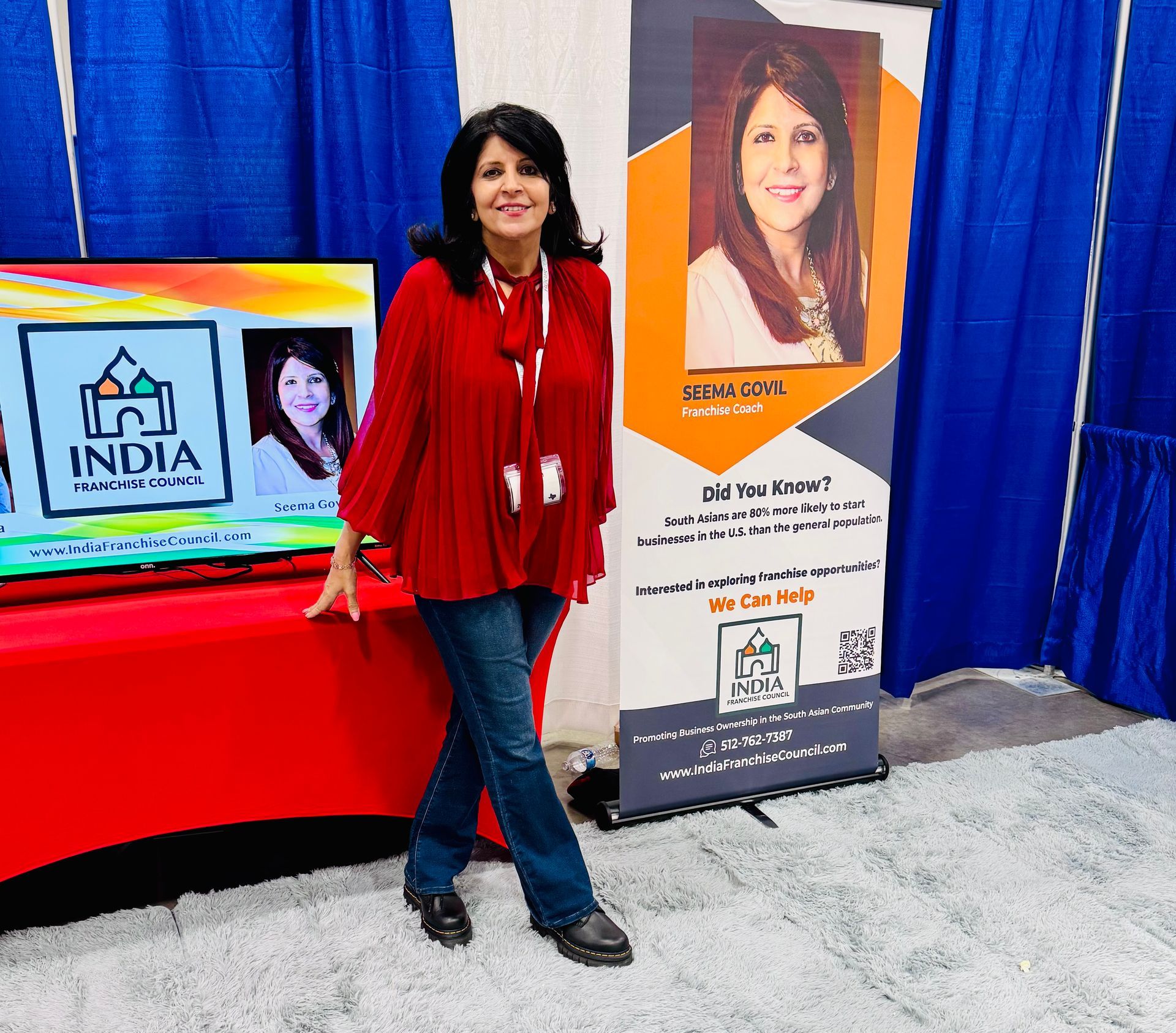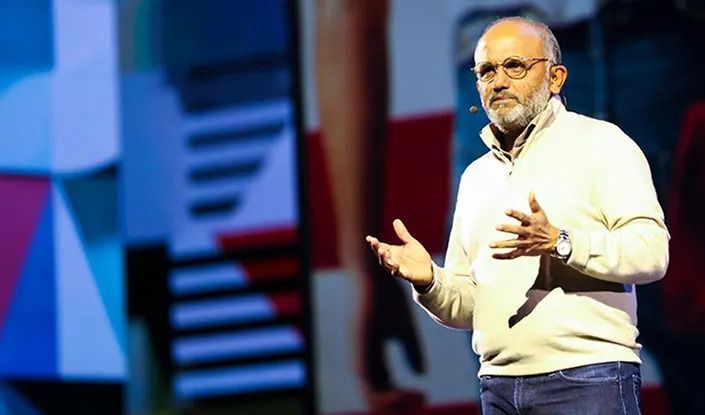Koala Insulation
December 1, 2023

Scott Marr
Koala Insulation
Founder & CEO
Founded in 2018, Koala Insulation benefits both customers and franchise partners. Its likable brand voices how home and business owners can earn back the cost of any insulation investment—all while helping the environment. Franchise partners make it happen through a simple business model, normal business hours, and great work and life balance. Getting started is simple and there’s no need to know about insulation before becoming a Koala franchise owner. The Koala Insulation model can be started with just one rig and scaled over time. Staffing needs are straightforward and as a mobile business, overhead is low and fixed. The insulation industry is an arena worth over 50 billion and currently hosts few organized and large competitors. Koala’s proven marketing systems drive leads and sales—franchisees benefit from the tried and true lead generation methods. For customers, Koala’s ability to stand by the quality of each job with a lifetime warranty and annual inspections can put their mind at ease.

Seema Govil’s journey is as dynamic and inspiring as the many stories she’s told—as an author, filmmaker, and now a globally recognized Franchise Consultant with The Franchise Consulting Company. She also serves as Vice President of the India Franchise Council. Once behind the camera interviewing world leaders and celebrities, Seema now sits across from aspiring entrepreneurs and visionary founders, guiding them through the transformative world of franchising. From India to the World: A Life of Curiosity and Impact Seema Govil’s early career reads like a cinematic script—journalist,Podcaster, author, and documentarian with a keen eye for uncovering human stories. Her roles as a correspondent with TV Asia and host of the podcast Fablife360 provided her with opportunities to interview top-tier individuals. Her passion for storytelling led her to travel extensively, capturing voices from every corner of society: artists, politicians, scientists, and visionaries. At the height of her media career, she conducted interviews with high-profile figures.She also flew to India in 2022 to create a documentary for the non-profit Akshaya Patra. But storytelling for Seema was never just about documentation—it was about transformation. Her natural curiosity and empathetic approach allowed her to unearth the deeper truths behind people’s journeys. Over time, she recognized a recurring theme: people are hungry for purpose, ownership, and freedom. That realization would eventually lead her to her next act—one that’s just as transformational, but in a very different industry. Transitioning from Film to Franchise The pivot from PR Media consultant, a filmmaker, journalist and a podcaster to a franchise consultant might seem unusual, but for Seema Govil, it was a natural evolution. “Every business has a story,” she says. “Franchising is simply another form of storytelling—except now, we’re helping people write the next chapter of their own lives.” Today, Seema is a leading consultant at The Franchise Consulting Company, one of the most respected franchise brokerage firms in the world. Based in Texas with her family, she serves clients across continents, helping aspiring business owners find the right franchise and guiding companies through the process of scaling through franchising. Her background in media gives her a unique edge: she listens deeply, asks the right questions, and finds the heartbeat of a brand—whether it’s a local coffee shop or a multinational service franchise. Empowering Entrepreneurs Through Franchising Franchising can be overwhelming, especially for first-time entrepreneurs. With hundreds of industries, thousands of brands, and a constant influx of new concepts, it’s easy to feel lost. T hat’s where Seema Govil comes in. Her approach is rooted in clarity, education, and alignment. “I see myself as a matchmaker,” Seema explains. “It’s not about selling a franchise. It’s about helping people make informed decisions that align with their goals, lifestyle, and vision of success.” She takes the time to get to know each client—what drives them, what their risk tolerance is, what kind of legacy they want to build. From there, she curates franchise opportunities that meet their criteria, often presenting options they hadn’t previously considered. Whether it’s a home-services brand with low overhead or a boutique fitness concept with explosive growth potential, Seema focuses on sustainable models that offer both personal fulfillment and strong returns. Her clients span the globe—from India to Dubai, India, London to Los Angeles. Many are professionals transitioning from corporate roles, while others are immigrants or veterans looking for a path to independence. Seema’s multicultural background and global mindset allow her to work seamlessly across cultural boundaries, making her a trusted advisor in both domestic and international franchise deals. Helping Companies Scale with Purpose In addition to helping people buy franchises, Seema also works with business owners who are ready to franchise their own companies . This side of her work involves strategic advisory—developing franchise models, helping with documentation, marketing strategies, and creating scalable systems. This is where her storytelling skills shine once again. “Franchising is more than a financial model,” Seema says. “It’s about brand culture. It’s about what makes this business unique and replicable. My job is to help business owners translate their values, their systems, and their essence into something another entrepreneur can follow and succeed with.” One of her recent projects involved helping a boutique wellness brand expand into three countries within its first year of franchising. Another, a food-tech company based in New Delhi, is now preparing to enter the U.S. market with Seema’s guidance. Seema is also all charged up to take American companies to open locations in India. A Family Rooted in Service and Vision Seema’s work ethic and vision are deeply influenced by her family and cultural roots. Living in Texas with her husband and children, she balances her global business with a grounded home life. Her family is actively involved in community service, and she often mentors young women looking to enter entrepreneurship. She has received numerous awards and accolades, with the most recent presented on Women’s Day at the Capitol in Washington, D.C., where she was honored for her outstanding leadership by U.S. Congressman Danny K. Davis. One of Seema's philanthropic endeavors took her to Jaipur, India, where she filmed the documentary Let's Rewrite Their Story, highlighting the impactful work of the Akshaya Patra kitchens and schools As someone who has navigated multiple careers, countries, and industries, Seema serves as a role model for adaptability and purpose-driven success. She often speaks at franchise expos and entrepreneurship conferences, inspiring others to think beyond traditional careers and take control of their financial futures. Looking Ahead: Legacy, Leadership, and Global Impact Seema Govil is not just building a career—she’s building a legacy. With her unique blend of media savvy, global perspective, and business acumen, she’s reshaping how people approach franchising. To her, every person who finds the right franchise, every business that successfully scales, is a story worth telling. She is also developing a podcast - FranchisingZen focused on entrepreneurship through franchising—sharing the stories of clients who’ve built multi-unit empires, left corporate burnout behind, or created generational wealth through business ownership. Just as she once gave voice to underrepresented stories through film, she now gives people the tools to shape their own entrepreneurial narratives. Seema, is a force wrapped in finesse — a poetic powerhouse with an eye for detail and a heart for impact. Seema Govil exemplifies the modern franchise consultant:Her journey—from interviewing the most powerful voices in India to empowering everyday people around the world—is a testament to the power of reinvention, connection, and purpose. In an era where people crave autonomy and impact, Seema offers something invaluable: not just a business opportunity, but a blueprint for freedom, ownership, and transformation. Seema’s world is a vibrant mix of style, strategy, and soul.

Self-belief and hard work will always earn you success. —Virat Kohli The American dream of entrepreneurship is alive and thriving among Indian Americans—one of the fastest-growing and most economically successful immigrant groups in the United States. According to the Pew Research Center , an estimated 5.2 million people in the United States identified as Indian in 2023. While various ethnic groups have made their mark on franchising, Indian Americans (and South Asians more broadly) are increasingly standing out for their high rates of ownership, strong community networks, and strategic approach to business. From hotel chains to fast food restaurants to senior care services, Indian Americans are not just participating in franchising—they’re dominating key sectors and reshaping the landscape. The Numbers Behind the Success While official data specific to Indian Americans in franchising is sparse, anecdotal evidence and broader business statistics paint a compelling picture. According to the U.S. Census Bureau and Pew Research Center, Indian Americans are the highest-earning ethnic group in the country, with a median household income surpassing $120,000 as of 2023. This financial leverage, combined with a strong entrepreneurial spirit, has led many to invest in franchising as a path to scalable, stable business ownership. With Indian American-owned hotels across the United States numbering around 34,000 —nearly 60 percent of all hotels located in the U.S.—the influence of Asian Americans in this sector is extremely strong. Need further evidence? The Asian American Hotel Owners Association (AAHOA) has more than 20,000 members and represents more than 60% of U.S. hotel ownership. In the quick-service restaurant space, Indian Americans are increasingly visible as owners of many convenience and food brands. Though national franchising success rates vary by industry, Indian American franchisees are often reported to outperform peers in profitability and longevity. The reasons for this lie in a distinctive cultural mindset and a highly strategic, long-term approach to wealth creation. Cultural Factors Driving Success Family and Community Networks Indian American families often operate franchises as multi-generational enterprises, pooling capital and labor. This communal approach reduces operational costs and provides built-in succession planning—key for franchise sustainability. Education and Professional Backgrounds Many Indian Americans come from STEM and finance backgrounds and apply data-driven decision-making to their franchise investments. Their ability to manage books, analyze market trends, and run operations efficiently gives them an edge. Risk Appetite and Resilience Unlike individualistic entrepreneurial ventures that depend on a singular founder’s idea, franchising offers a playbook. Indian Americans—many of whom are first- or second-generation immigrants—are drawn to this blend of structure and risk mitigation. They're not afraid of hard work but prefer systems that reward persistence. Work Ethic and Operational Rigor Whether managing long shifts or upholding franchise brand standards, Indian Americans often bring a level of discipline and operational intensity that translates into customer loyalty and profitability. Preferred Franchise Sectors Certain industries have proven especially attractive to Indian American franchisees. These are the top five: Hospitality and Lodging This remains the largest concentration of Indian American franchise ownership. The sector's high upfront costs are often offset by long-term asset appreciation and family-run efficiency. Quick-Service Restaurants (QSRs) Brands like Dunkin’, Subway, Taco Bell, and Pizza Hut are favored for their replicable operations and name recognition. Indian Americans often buy into multiple units at once or scale over time. Gas Stations and Convenience Stores Combining retail and food services, these operations appeal to multi-business operators and those with real estate knowledge. Senior and Home Health Care Franchises These brands are gaining traction among second-generation Indian Americans who prefer service-based businesses with community impact. Education and Tutoring Franchises Given the cultural emphasis on academic achievement, franchises like Kumon, Mathnasium, and Sylvan appeal to Indian Americans seeking mission-aligned investments. How Franchises Can Engage Indian American Investors If you’re a franchisor aiming to reach this influential demographic, the path forward involves respect, relevance, and relationship-building. As with any minority group, representation matters. Showcase success stories of Indian American franchisees in your marketing materials. Representation not only resonates—it builds trust. Consider engaging prominent Indian American owners as brand ambassadors. Understand key cultural values like family legacy, education, and long-term wealth. For example, promoting how your franchise can support multigenerational involvement or offer legacy planning can be highly persuasive. While most Indian Americans are fluent in English, marketing materials that show awareness of cultural celebrations (like Diwali or Holi), family values, and community ties can signal authenticity. Many Indian American investors are sophisticated capital planners. Offering financing tools or tiered multi-unit agreements will appeal to their growth mindset. Additionally, Indian American franchisees often look for dependable ROI and strong operational support. Be clear about the franchisee success rate, available mentorship, and training programs. The Second Generation: A New Wave of Franchisors? What’s especially exciting is the evolution of Indian American franchising into new frontiers. Second-generation Indian Americans, born and raised in the U.S., are increasingly blending cultural heritage with modern entrepreneurship. Some are stepping into legacy businesses but transforming them with tech, digital marketing, or service innovation. Others are moving beyond traditional sectors into fitness, beauty, pet care, or fast-casual concepts that align with newer consumer trends. This generation brings a dual identity—rooted in immigrant values but fluent in American consumer culture. Franchisors who want long-term partners should start planning not just for franchisee recruitment but for intergenerational continuity. Indian Americans have carved out a formidable space in the American franchising landscape through hard work, strategic investment, and cultural cohesion. They represent one of the most promising—and underleveraged—demographics in franchising today. For franchisors, the message is clear: engaging Indian American entrepreneurs is not just good optics—it’s good business. By understanding the values that drive this community and offering inclusive, culturally aware pathways into franchise ownership, brands can tap into a demographic known for high performance, strong loyalty, and a passion for long-term success. Want to learn more? Contact Seth Lederman with Frannexus. About the author Seth Lederman, CFE, a Franchise Acquisition and Development Specialist, is a multi-faceted entrepreneur with over 30 years of experience in small business success, including ownership and sale of his business enterprises. He is a frequent contributor to The Franchise Journal and is on the exclusive Forbes Business Council. Contact Seth at seth@thefranchiseconsultingcompany.com .

I've had my fair share of Indian meals in Dallas, but the new menu at Sanjh genuinely left an impression. The restaurant itself feels like an occasion—lavish without being overdone, warmly lit, with a modern elegance that mirrors what’s happening in the kitchen. Under Executive Chef Sarabjit Singh Assi, the new menu strikes a thoughtful balance between tradition and technique. Chef Assi and his team—14 chefs, each specializing in a distinct craft—aren’t just cooking; they’re curating an experience. And it shows. Take the Dahi Puri , for instance: crisp spheres filled with tangy yogurt foam and topped with seasonal berries. It’s a playful, precise bite—light, unexpected, and deeply satisfying. The Truffle & Blue Cheese Kulcha is one of those dishes you think you’ll just sample, only to find yourself finishing it. Rich, earthy, and indulgent, yet never overwhelming. What I appreciated most was the restraint. The flavors are layered, but never crowded. Dishes like the Prawn Mango Curry and Saag Anjeer ke Kebab showcase spice with clarity—not heat for heat’s sake. The tandoors (yes, plural—three, each with its own heat profile) lend a subtle smokiness that ties many dishes together. About the Author Seema Govil, a Versatile Leader: Bridging the Worlds of Franchise Consulting, Media, and Philanthropy as the Founder and CEO of Cosmo City Media. For franchising help, contact Seema at Seema@thefranchiseconsultingcompany.com .

Success in any sphere—be it personal growth, leadership, or community development—is rooted in one timeless principle: discipline. The journey toward meaningful achievement begins with a commitment to self-discipline, which, when cultivated consistently, evolves into habitual action. These habits, over time, create the foundation upon which long-term success is built. Importantly, anything truly worthwhile demands time, patience, and sustained effort. In this issue dedicated to Indian heritage, I explore how the cultural trinity of India— Spirituality, Food, and Cinema —nurtures this very journey of discipline, consistency, and success. These three pillars are not just cultural expressions; they are lived experiences that shape character, build habits, and unite people across generations. Spirituality: The Inner Compass Indian spirituality offers more than religious practice—it provides a framework for introspection, mindfulness, and personal growth. Through disciplines such as meditation, yoga, and devotional practices, individuals develop focus, resilience, and clarity. These are essential traits for any leader. Spirituality teaches us to live with intention and purpose, laying the groundwork for consistent, values-driven action. Food: Nourishment and Ritual Food in Indian culture is much more than sustenance—it is a ritual that embodies care, discipline, and community. From the Ayurvedic principles of balance to the traditional customs of preparing and sharing meals, food practices encourage mindfulness, health consciousness, and connection. The regularity of these culinary traditions fosters habits of attention, preparation, and patience—qualities mirrored in any successful endeavor. Movies: Storytelling and Shared Identity Indian cinema has long been a powerful tool of storytelling and cultural transmission. Movies encapsulate moral lessons, celebrate resilience, and reflect the aspirations of a diverse population. They bring people together, spark conversations, and often serve as motivational forces. The heroes and narratives portrayed become symbolic guides, encouraging audiences to strive, persist, and believe in transformation. In weaving together spirituality, food, and movies, Indian heritage provides not only cultural richness but also a roadmap for personal and collective success. By drawing from these traditions, individuals can develop the self-discipline needed for consistent action—transforming effort into habit, and habit into achievement. And as we build ourselves, we also build stronger, more connected communities. Part I - Stillness in Motion: How Indian Spirituality Cultivates Inner Discipline In a fast-paced world driven by instant gratification and constant distraction, the pursuit of long-term success—rooted in meaningful, consistent habits—can feel elusive. Yet history and modern times alike offer us a quiet truth: true success begins from within. The inner discipline we cultivate through spiritual seeking becomes the compass for our outer achievements. This is not a new idea. Indian culture has long upheld spirituality as not only a path to inner peace but also a tool for shaping resilient, focused, and purpose-driven individuals. The rituals, philosophies, and meditative traditions of India provide practical methods for self-mastery—an essential precursor to personal and professional success. The Seeker’s Journey: When Icons Turn Inward What is striking is how this inner journey has appealed to some of the most accomplished minds in modern history. Steve Jobs , in his youth, traveled to India in search of spiritual enlightenment. Deeply influenced by Zen Buddhism and Indian philosophies, Jobs once remarked, "Your time is limited, so don’t waste it living someone else’s life." His minimalist design principles and deep intuition were sharpened not just by innovation, but by introspection. Mark Zuckerberg followed a similar path when, on Jobs’s advice, he visited a temple in India during a pivotal time in Facebook's early years. That journey, he later said, helped center him with clarity and conviction about his mission. Jay Shetty , a former monk turned global mindset coach, has made it his life’s work to share spiritual teachings through a modern lens. Drawing from his years living in an ashram, his bestselling books and viral videos show how ancient wisdom can guide contemporary life with simplicity and discipline. Even Elon Musk , a symbol of technological audacity, has publicly explored philosophical and spiritual questions, including the nature of consciousness and the potential higher order of intelligence that might be shaping our universe. While his path is unconventional, it echoes the same curiosity that has driven mystics and scientists alike to look inward. These figures represent more than personal stories—they reflect a universal truth: when the mind is trained to be still, the individual becomes unstoppable. From India and Beyond: Spiritual Guides Who Shape the Modern Mind While some seek solitude in Himalayan caves or Zen monasteries, millions today are turning to spiritual guides who offer practical wisdom for modern living. Among them, three stand out for their global impact—two rooted in Indian tradition, and one who has brought Indian spiritual systems into a truly international framework. Master Choa Kok Sui , though not Indian by origin, was a spiritual scientist born and raised in the Philippines, with a Catholic and Buddhist background. What makes his work extraordinary is how he seamlessly integrated Indian spiritual teachings—particularly the energy systems of prana, chakras, and karma—into a comprehensive and accessible path for healing and transformation. Through his systems of Pranic Healing and Arhatic Yoga , he made esoteric wisdom understandable and usable, empowering individuals around the world to live happy, healthy, and spiritually fulfilling lives. I speak from personal experience. After several years of practicing techniques from the Art of Living , I found myself drawn to Pranic Healing in March of last year. That journey became a turning point. Under the guidance of Dr. Prashant Ganapathy , a former medical doctor now based in the Netherlands who has dedicated his life to healing and teaching, I experienced a profound shift—not just in my energy, but in my life’s direction. His mentorship, and the clarity of Master Choa’s teachings, opened a new dimension of purpose for me. Opportunities like franchising service that have since come my way align with my higher purpose of helping people become very successful—both spiritually and financially. This realization has affirmed one of the deepest truths I’ve come to embrace: What you are looking for is looking for you too. Sri Sri Ravi Shankar , founder of the Art of Living Foundation , emphasizes breathwork, meditation, and service as gateways to peace. His Sudarshan Kriya has transformed lives globally, offering powerful tools for managing stress, anxiety, and emotional turbulence in today’s hyperconnected world. Sadhguru , founder of the Isha Foundation , has brought yogic sciences to the forefront of global conversations through his accessible and unorthodox style. His Inner Engineering program teaches that transformation begins with inner alignment—an approach that appeals to seekers from all walks of life, from Silicon Valley engineers to rural farmers. These teachers offer something rare: a bridge between ancient inner technology and the modern-day need for clarity, resilience, and purpose. Their teachings are not escapes from reality—they are roadmaps for navigating it. Spirituality as the First Habit of Success Indian spirituality is not separate from life—it is a way of living life fully, attentively, and meaningfully. At its heart lies discipline: the regularity of meditation, the structure of rituals, the accountability of self-reflection. When practiced consistently, these elements cultivate inner clarity, which eventually becomes outer mastery. In a world beset by war, division, and digital overload, these teachings remind us of what endures: presence, peace, and purpose. They tell us that success is not about chasing more—it is about becoming more. Seeking Stillness, Building Strength In the pursuit of success, the world often encourages action first. But Indian wisdom teaches us that stillness precedes right action. Before strategy comes silence. Before leadership comes self-mastery. Spirituality, when practiced with sincerity and consistency, becomes the engine of transformation. It fosters the kind of discipline that doesn’t just help us achieve—it helps us align. And in that alignment, true success unfolds—not just for the individual, but for the community, the culture, and the world. About the Author K G LeRoy is a purpose-driven serial entrepreneur and seasoned data and technology leader with over 25 years of experience across some of the world’s most respected organizations — including Tata Consultancy Services, Merrill Lynch, the Federal Reserve Bank of New York, and Deloitte Consulting. An MBA graduate of the prestigious NYU Stern School of Business, K G has built an illustrious career in both the corporate and entrepreneurial arenas — leading high-impact teams, delivering strategic transformations, and cultivating trusted relationships across a vast network of professionals from all walks of life. In parallel with his professional success, K G has undergone a profound personal transformation — evolving into a spiritual and business leader with a higher mission: To help individuals and families transform their lives through purpose-driven collaboration and financial professional, real estate, and franchise services, starting with their own. He is now dedicated to enabling others to align with their inner calling or reconnect with long-lost dreams, create meaningful income streams, and co-build a caring and prosperous world for all. Many others with a similar purpose are now joining him on this journey to fulfill his higher mission. Contact K G LeRoy at kg@thefranchiseconsultingcompany.com .

When ThirsTea opened its doors in 2019 in Temecula, California, it had more on its menu than bubble tea—it had vision. Co-founders Sonny Paul and Keerthy Sunder, fueled by a shared love for premium beverages, launched a bold brand rooted in creativity, quality, and community. Since then, their brand has bubbled into a refreshing force in the fast-casual beverage world. “ThirsTea was born from a profound love for bubble tea and a dream to share that passion with the world,” Sonny reflects, underscoring how the venture combines personal zeal with entrepreneurial intent. From classic milk teas and bubble teas to slushies, inventive milkshakes, rolled ice cream, frappes, smoothies, and acai bowls, ThirsTea’s vibrant menu is a testament to their commitment to flavor and fun—an approach that quickly won hearts in Temecula and caught the eye of investors and tea aficionados alike. By 2023, Sonny and Keerthy were ready to scale their vision, launching a national franchising initiative in response to growing demand. With two company-owned locations in Southern California as launchpads, the brand began offering franchises across the U.S. The timing couldn’t be better—bubble tea industry revenues are projected to reach $2.46 billion this year, and ThirsTea is poised to ride the wave. What gives the franchise its competitive edge isn’t just its flavorful lineup—but its franchise model. Sonny highlights the benefits: “Franchising ThirsTea is a strategic move that offers accelerated growth, risk diversification, and increased brand visibility”. Their streamlined operations, US-based supply distributor, and low overhead model make it an attractive option for new business owners . Behind every tempting menu item lies the duo’s keen eye for identifying product gaps in the market, combined with decades of industry experience. Sonny holds an MBA degree and has spent 18 years in the food and beverage sector, working with major corporations like Pepsi and Coca-Cola. Sonny and Keerthy have developed strong instincts for quality sourcing—like freshly brewed teas and organic milk options—as well as a fierce passion for innovation. Flavors rotate seasonally, and franchisees can customize local menus to reflect regional tastes without losing the brand’s signature vibe. Equally vital to their philosophy is an emphasis on community. ThirsTea stores are more than beverage stops—they’re social hubs. Whether partnering with local vendors, supporting charity events, or simply crafting Instagram-worthy drinks, Sonny and Keerthy have made community cultivation a brand cornerstone. Today the brand is actively scouting franchisees across states, and for entrepreneurs looking to capitalize on the booming bubble tea trend, ThirsTea offers compelling appeal: quality, innovation, support—and a proven framework for fast, scalable growth. For Sonny and Keerthy, launching a business was a natural extension of their shared passion for entrepreneurship and long-standing desire to shape their own future. ThirsTea offered more than just a business opportunity—it provided a platform to exercise creative autonomy, make meaningful decisions, and build something lasting. Through the brand, they saw the chance to not only create a thriving enterprise, but also to build a valuable asset and leave a legacy rooted in passion, purpose, and community. Their advice for anyone looking to get into franchise ownership – “A franchise offers a strong brand, an established support system, and a proven business model—but success still requires a franchisee’s commitment. Be prepared to work hands-on, especially in the beginning, to understand your operations and customers, and to build a strong team”, says Sonny. Equally important is financial acumen. “Understand your costs, margins, and break-even point. Good products and branding matter, but strong financial discipline will keep your business thriving”, he adds. From handcrafted boba to rolled ice cream artistry, ThirsTea delivers more than sweet treats—it offers an experience shaped by passionate founders, strong systems, and a community-first mindset. As the bubble tea wave keeps rising, Sonny Paul and Keerthy Sunder are brewing momentum—one cup at a time. About the Author Kapil Manocha is a multi-unit franchise owner, a leading franchise coach, a public speaker, and an author. Drawing on years of experience Kapil has helped hundreds of people gain personal and financial independence through franchising. Contact Kapil at kapil@thefranchiseconsultingcompany.com .

Dr. Veena Chandrakar, a medical oncologist based in Houston, has dedicated over two decades to treating patients and advancing cancer care. Through her years of practice, she began to notice a common thread among nearly all her patients and even among healthy individuals that chronic dehydration and widespread nutrient deficiencies were part of their issues with overall wellness. Whether due to poor diet, stress, medical conditions, or the demands of modern living, most people simply weren't getting what their bodies needed to function optimally. This growing awareness led Dr. Chandrakar to explore complementary avenues of care that could support overall health and healing. She was initially drawn to The DRIPBaR franchise as a way to incorporate high-dose vitamin C into her cancer-fighting arsenal. However, once she opened The DRIPBaR Houston Heights, it quickly became clear that the benefits extended far beyond oncology. What started as a targeted medical solution soon evolved into a broader wellness mission. Dr. Chandrakar found that the IV vitamin drips offered at The DRIPBaR were improving her clients' energy, immunity, mental clarity, inflammation levels, and even their sense of well-being. The positive impact on everyday health was undeniable. More unexpectedly, the experience of operating her DRIPBaR franchise has reignited Dr. Chandrakar's passion for medicine. She juggles several important jobs: the most important is being a mom of a 1year old boy, the next is a position as a medical director of a Cancer Center and the final role is the owner of the Dripbar Houston Heights. The days she comes to The DRIPBaR and interacts with clients are some of her favorite days of the week, reminding her of why she chose this path in the first place which is to help people feel better, live longer, and thrive. For people considering franchising in the wellness space, Dr. Chandrakar's journey highlights how a clinically grounded model like The DRIPBaR can be both personally fulfilling and professionally rewarding. It's not just a business - it's a new way to care for people in today's fast-paced, wellness-focused world. About the Author Seema Govil, a Versatile Leader: Bridging the Worlds of Franchise Consulting, Media, and Philanthropy as the Founder and CEO of Cosmo City Media. For franchising help, contact Seema at Seema@thefranchiseconsultingcompany.com .

"The greatest use of life is to spend it for something that will outlast it." — William James Indian Americans have quietly become one of the most influential communities in American franchising. From single-unit operators to multi-brand empires, their presence is particularly strong in industries like hospitality, food service, convenience retail, and home services. This success is no accident. It is the product of values, vision, and a systems-based mindset that fits naturally into the franchise model. Franchising offers a unique opportunity: the structure of a proven business with the freedom to operate and scale. For Indian American entrepreneurs, many of whom come from a cultural background that emphasizes discipline, long-term planning, and family collaboration, franchising offers more than just income. It offers a pathway to legacy, a chance to build something lasting, not just for themselves, but for generations to come. The influence of this community is especially visible in industries that rely on operational consistency and community engagement. Often, franchises owned by Indian Americans become pillars of their neighborhoods, employing dozens, reinvesting in local causes, and supporting family members to build financial independence. These businesses are not just profit centers; they are community anchors that provide services, stability, and opportunity. This momentum is not just generational. It is strategic. Many Indian American franchisees bring a high level of intentionality to brand selection, location strategy, and reinvestment. Multi-unit and multi-brand ownership is common, as is the practice of involving family in operations, which keeps costs low and decision-making agile. Franchising is rarely seen as a side venture. It is a core family enterprise, often with the future in mind from the very first investment. Key Traits Indian American Franchisees Bring to the Table 1. Long-Term Mindset Many Indian American business owners approach franchising with a multigenerational vision. Decisions are not made for short-term gain but with an eye toward building something lasting, often with the intent to pass it on to children or extended family. Success is not measured quarter to quarter, but decade to decade. 2. Operational Discipline With a strong respect for systems, consistency, and process, Indian American franchisees often thrive in brands that value structure. They are quick to implement SOPs, follow brand standards, and find efficiencies that drive profitability. Operational excellence becomes the standard. 3. Family-Driven Support Structures Franchises are frequently run by multiple family members, which allows for flexible staffing, shared investment, and built-in trust. This family model can create a competitive advantage in both cost structure and cultural cohesion. It is not unusual to see parents managing operations while their children handle marketing or technology, creating a true team effort. 4. Analytical and Risk-Aware Decision Making Business decisions are backed by deep research, due diligence, and calculated risk. Indian American franchisees are known for thoroughly evaluating Franchise Disclosure Documents, running the numbers, and seeking advice before making major moves. Caution is seen as strategy, not hesitation. 5. Community-Centered Values Giving back and being visible in the local community is often a priority. Whether through local chambers, school sponsorships, or hiring from within the neighborhood, Indian American franchisees frequently become cornerstones of the communities they serve. Business thrives when people thrive. 6. Emphasis on Education and Mentorship A high value is placed on learning, not only for personal growth but for passing along knowledge to the next generation. Many successful Indian American franchisees mentor others in their community and help new immigrants find pathways to ownership. Education is not just academic; it is generational empowerment. A Quiet Force in American Franchising Despite their outsized contributions, Indian American franchisees have historically been underrepresented in media coverage and industry leadership narratives. Yet their impact is undeniable. From revitalizing local economies to building multi-unit enterprises that span states, they are a quiet force helping define what modern franchise success looks like. The early years often involved long hours, living above or behind the business, and working shoulder to shoulder with family members. Over time, these efforts have created financial independence and new opportunities, not only for relatives, but for employees and the community. What began as necessity has become legacy. As franchising evolves, this community’s influence will continue to grow in new industries such as education, senior care, and health and wellness. With a blend of cultural heritage and business acumen, Indian American franchisees are uniquely positioned to lead the next chapter of franchise expansion and innovation. Their stories remind us that the American Dream takes many forms. Franchising, when paired with the right values and vision, can turn first-time business owners into multi-unit operators, brand builders, and legacy makers. Franchising has always been about scale, systems, and support. Indian American entrepreneurs bring all three to the table. As the industry continues to spotlight diverse ownership and inclusive opportunity, the example set by this community serves as both a model and a call to action. About the Author T.J. Treat is a franchise consultant, multi-unit franchise owner, and former marine engineer. He helps individuals and business owners navigate the path to successful franchise ownership through strategy, systems, and storytelling. Contact T.J. at TJ@thefranchiseconsultingcompany.com.

In the dynamic world of technology, where innovation meets relentless competition, few leaders have made as profound an impact as Shantanu Narayen, the Indian-origin Chairman and CEO of Adobe Inc. As the driving force behind one of the world’s most influential software companies in US, Narayen exemplifies what can be achieved through vision, perseverance, and global perspective. We celebrate his journey, from Hyderabad to the boardrooms of Silicon Valley, and the legacy he’s building in reshaping the digital experience for billions across the globe. From Hyderabad to Silicon Valley: The Early Journey Born in Hyderabad, India, in 1963, Shantanu Narayen was raised in a modest yet intellectually rich household. His father ran a plastics business, while his mother was a teacher of American literature—perhaps a fitting beginning for someone who would later helm a company known for empowering creative expression. Narayen pursued a Bachelor’s degree in Electronics and Communication Engineering before heading to the US for higher education. He earned a Master’s in Computer Science from Bowling Green State University, and later, an MBA from the Haas School of Business at the University of California, Berkeley. His combination of technical depth and business acumen would later prove to be a potent force. Building His Career: From Engineer to Executive Before joining Adobe, Narayen held product development roles at Apple and Silicon Graphics, and was co-founder of Pictra Inc., a pioneer in digital photo sharing. These early experiences deepened his understanding of user needs and product ecosystems in the emerging world of digital media. Narayen joined Adobe in 1998 as a senior vice president of worldwide product development. His rise through the ranks was rapid and well-deserved. In 2007, he was appointed CEO, and in 2017, he became Chairman of the Board. A Transformative Leader at Adobe Shantanu Narayen’s leadership at Adobe is widely regarded as transformational. He successfully shifted the company’s core business model from selling boxed software to offering cloud-based subscriptions, launching the Adobe Creative Cloud suite in 2012. This strategic pivot, once considered a high-risk move, became a textbook case in corporate reinvention. Under his leadership: Adobe’s market capitalization grew from around $20 billion in 2007 to over $250 billion at its peak. The company expanded beyond its flagship products like Photoshop and Illustrator, acquiring tools like Figma, Magento, and Marketo, turning Adobe into a comprehensive platform for creative, document, and digital experience solutions. He championed the use of AI and machine learning, embedding Adobe Sensei into core products and enabling personalized content at scale. By focusing on customer-centric innovation, Narayen has ensured that Adobe remains at the forefront of digital transformation across industries, from media & entertainment to retail and education. Recognition and Influence Shantanu Narayen’s achievements have not gone unnoticed. He has repeatedly featured in Forbes’ lists of top CEOs, and in 2018, he was named one of the world’s best-performing CEOs by Harvard Business Review. He serves on the board of Pfizer, and was appointed by President Joe Biden to the National Security Telecommunications Advisory Committee. In 2019, he was awarded India’s Padma Shri, one of the nation’s highest civilian honors, recognizing his contributions to trade and industry. Beyond the boardroom, Narayen is known for his calm demeanor, clear strategic vision, and inclusive leadership style. He is a vocal advocate for diversity in technology, digital literacy, and ethical AI—topics that are reshaping the tech landscape in profound ways. A Symbol of the Indian Diaspora’s Global Impact Narayen’s success story is emblematic of the Indian diaspora’s global rise in the technology sector. Alongside peers in Microsoft and Google, he represents a generation of Indian-origin leaders who have not only excelled in USA but have also helped shape the future of technology itself with purpose driven innovation. For young Indian professionals and entrepreneurs, Shantanu Narayen stands as a powerful symbol—proof that with a strong foundation, a global mindset, and relentless dedication, borders are no barrier to greatness. And that, values deeply embedded in Indian culture—education, resilience, and adaptability—can serve as cornerstones for global leadership. About the Author With two decades of leadership in business development and management, Jatinder Taneja brings a powerful blend of entrepreneurial insight and strategic expertise to help individuals achieve success through franchise ownership. As a trusted consultant and coach, he delivers personalized guidance that aligns each candidate with the right opportunity, tailored to their goals, strengths, and lifestyle.

In the dynamic world of culinary entrepreneurship, where trends come and go, Chef Vijay Kumar stands as a beacon of authenticity and unwavering commitment to his roots. His journey from the humble villages of Tamil Nadu, India, to the glittering Michelin-starred kitchens of New York City is a testament to the power of passion, persistence, and an unapologetic embrace of one's heritage. For any franchising consulting company seeking to highlight a true success story, Chef Vijay Kumar's narrative offers a compelling blueprint for how a singular vision can translate into global acclaim. Born and raised in a small town near Dindigul, Tamil Nadu, Kumar's earliest culinary education came not from prestigious schools, but from the open-fire kitchens of his mother and grandmother. He foraged for ingredients, learned the art of cooking over wood fires, and absorbed the intricate flavors and traditions of Southern Indian cuisine. This foundation, deeply rooted in family recipes and regional practices, would become the bedrock of his future success. While his initial aspirations might have leaned towards engineering, destiny, fueled by the aroma of spices and a profound connection to his culture, had other plans. Kumar pursued hotel management in Tiruchirappalli, followed by formative years at the Taj Connemara in Chennai and then on a cruise liner, where he honed his precision and efficiency. His move to the United States marked a pivotal moment. He worked in California at Dosa and then at Rasa, where his contributions helped the latter secure a coveted Michelin star. However, it was his partnership with Unapologetic Foods, helmed by restaurateurs Roni Mazumdar and Chintan Pandya, that truly unleashed his vision. In 2021, Kumar packed his bags and drove cross-country to New York City to open Semma. The name itself, "Semma," meaning "super" in Tamil slang, encapsulates the restaurant's ethos: a bold, unyielding celebration of Southern Indian cuisine. At Semma, Chef Kumar isn't just cooking; he's telling stories. The menu is a deeply personal expression of his childhood, featuring dishes like nathai pirattal (snail curry) and kudal varuval (goat's intestines)—dishes once considered "poor people's food" in his youth, now elevated to fine dining experiences. He consciously avoids catering to Westernized palates, instead inviting diners to immerse themselves in the authentic, robust flavors of Tamil Nadu. This commitment to authenticity, often perceived as a risk, proved to be his greatest strength. The accolades poured in. Semma quickly earned a Michelin star, a distinction it has proudly retained, becoming the only Indian restaurant in New York City with this honor. It was also lauded by the New York Times, making their prestigious "100 Best Restaurants in New York City" list, and received numerous other commendations from leading culinary publications. Most recently, Chef Kumar won the highly prestigious James Beard Award for "Best Chef: New York State," a historic achievement for both Indian and Tamil cuisine in the US. His emotional acceptance speech, where he reflected on his journey as "a dark-skinned boy from Tamil Nadu," resonated deeply, highlighting the power of his cultural narrative. Chef Vijay Kumar's success is a powerful lesson for the franchising world. It demonstrates that genuine passion, a compelling personal story, and an unwavering commitment to a unique and authentic product can not only find a niche, but dominate it. His ability to translate deeply personal culinary memories into a globally recognized brand, without compromising on tradition, offers invaluable insights into building a successful and sustainable enterprise. He proves that true greatness isn't about following trends, but about staying rooted, celebrating your origins, and allowing your culture to shine through every plate. About the Author Contact Sadish Kumar Jayachandran at sadish@thefranchiseconsultingcompany.com .

My mother’s youngest brother, Bharat Aggarwal, came to the United States from India with very little. One suitcase. A few hundred dollars. No backup plan. He opened a single Subway franchise and learned every piece of the business by doing it. He struggled, adjusted, and kept going. Today, he owns more Subway restaurants than anyone else in the country. That story isn’t just about business growth. It’s about inner growth. The kind that happens through discipline, hard decisions, and steady courage. I call it Next Level Growth - not just scaling numbers, but expanding capacity, alignment, and integrity. It’s the kind of growth I teach through my Rise Through It™ framework. I grew up in a first-generation Indian-American home in North Carolina. My parents were immigrants who came here with ambition and heart. But their journey wasn’t smooth. They faced racism, financial struggle, failure, and loss. And instead of hiding it, they showed us how to live through it - with faith, hope, love, and an unshakable refusal to give up. That’s what I carry with me now. Not a blueprint for perfection. A model for rising, no matter how far you fall. I followed what I thought was the path to success: Ivy League law school, high-stakes dealmaking, entrepreneurship, motherhood. But underneath the accomplishments, I was chasing approval. I ignored my intuition. I made choices I regret. I violated my own values and was sentenced to federal prison. Prison stripped everything away - titles, credibility, certainty. But it gave me space to be honest. I started to ask better questions. I started to rebuild, from the inside out. That process led me to create the RISE Through It™ framework, the foundation of my work today with leaders, franchise owners, and teams who want to grow in a way that’s sustainable and real. Reframe : When it breaks, ask what it’s trying to teach you. Don’t rush to fix. Start by listening. Identify : You can’t grow in isolation. Surround yourself with people who tell the truth and hold space. Surrender : Let go of the grip of ego. Control and perfection are illusions. Clarity begins when you release them. Evolve : Tweak and test. Build better systems. Make better choices. Grow forward. This is the path I live now. Not because it’s easy - but because it’s honest. And because it honors where I come from. My uncle didn’t become the country’s top Subway franchisee by playing it safe. He worked relentlessly, made mistakes, and kept going. More than that, he mentored others. He helped fellow immigrants launch their own franchises. He shared what he knew. He stayed rooted in his values while building something that created opportunity for others. This August, as we celebrate India’s Independence Day, I think about what real freedom looks like for this generation of entrepreneurs. It’s not just about how much we own or how far we’ve come. It’s about building lives and businesses that reflect who we are, even when the path breaks open beneath us. Next Level Growth isn’t a straight line. It’s a decision to keep going, to stay open, to let the hard moments shape us instead of shut us down. My parents taught me that. My uncle lives it. And I try to walk it every day. I want every franchise owner, every leader, every reader to know this: You don’t have to hide the struggle. Your rise is already happening. And it’s worth building from there. I believe in you. About the Author Rashmi Airan is a keynote speaker and leadership consultant who helps entrepreneurs identify the right franchise fit while building the mindset to lead through uncertainty and growth. With a background in law, business, and franchise strategy, she delivers powerful insights to help franchise owners rise through challenges and lead with clarity, courage, and connection. Contact Rashmi at Rashmi@thefranchiseconsultingcompany.com .


